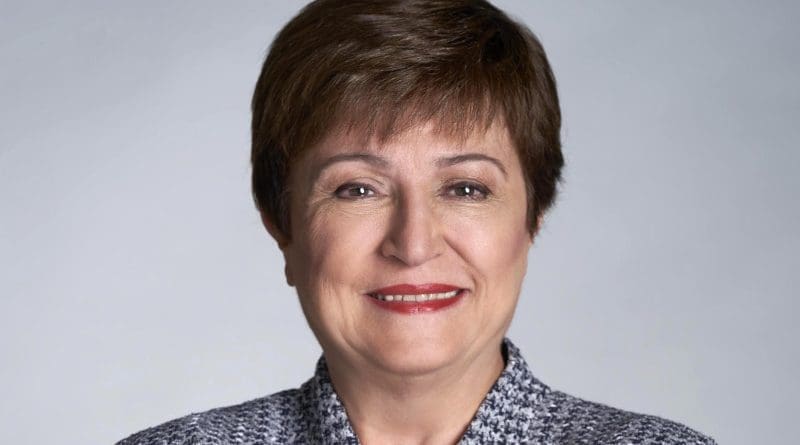Women In Economics And Finance: Debate On The Next Challenges In The EU – Speech
Opening Remarks by Kristalina Georgieva, Managing Director, IMF
Hello, and thank you for the opportunity to participate in today’s important event during the European Gender Equality Week.
Let me start by stating the obvious. Women’s economic and financial empowerment is critical for economic growth, which currently remains well below its pre-pandemic average. We need more women in the workforce.
When women have the same opportunity as men to fully participate in the labor market, it is not only good for them: it is good for their families, their communities, and their countries.
Just think, only 47 percent of women are active in today’s labor markets, compared with 72 percent of men.
If emerging and developing economies reduce this gap even by six percentage points, which countries have shown is achievable in just a few years, we estimate they could boost GDP by about 8 percent. This is way more than the economic scarring—the output losses—inflicted on countries by the pandemic.
Empowering women is also critical for building resilience in a more shock prone world.
The IMF’s unique global view allows us to see how gender gaps around the world are impacting the global economy and how closing them can benefit everyone.
Doing so requires applying a gender lens to macroeconomic policy making. We are doing just that under our new IMF gender strategy, which integrates gender into our core work, including policy, lending, and capacity development.
We are discussing with our members how closing gender gaps and increasing women’s representation is good for everyone. We worked with 22 countries in the first year, from education in Niger, to labor force participation in Saudi Arabia, to science and technology in Japan.
But it is not enough to provide support to our members. As an institution, we need to lead by example. And I am happy to say this is exactly what we do.
We have increased our share of women in leadership roles. Today, out of five people at the top of the institution, myself, and my four Deputy Managing Directors, three are women, and nearly 40% of our department heads are women.
How have we achieved this? How do we bring more women into the Fund and up in our ranks?
First, we recruit women that are highly talented. We reach far and deep to build a strong women participation at the Fund.
Second, we built a strong internal pipeline for senior roles, and we include key diversity indicators in our business accountability frameworks, and we talk about achieving goals with our teams.
And we also participate in leading global certification process for gender equality.
It is very important that we provide men and women equal treatment, equal opportunities. We have a policy for taking maternity and paternity leave for both men and women on equal basis. We have subsidized access to daycare facilities for families with young kids.
And we recognize there is more work to be done. Women are not well represented among Ph. D. level macroeconomists. So we need to engage earlier with women studying economics to excite them to come and join us at the IMF.
We also do quite a lot of research—for example, research on gender equality in central banks. It highlights the importance of role models and mentoring, child and parental leave policies—as I mentioned before—and more flexible job arrangements to increase participation and help women climb the institutional ladder.
This kind of research translates into real change for real women. Just look at Claudia Goldin, whose work on global gender gaps in employment and pay corrected a blind spot in economic analysis. That work just made her the third woman to ever win the Nobel Economics Prize and the first woman to be the sole winner in any year.
No step towards empowering women is too small because there is a chain reaction. When we empower women anywhere, we are helping to empower them everywhere.
As we recognize European Gender Equality Week, let us make this a priority every day in every country, not just in Europe, but around the world.
Thank you.

